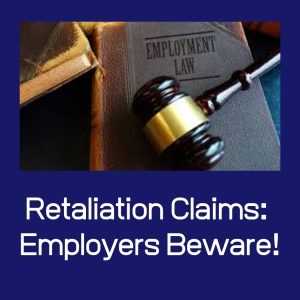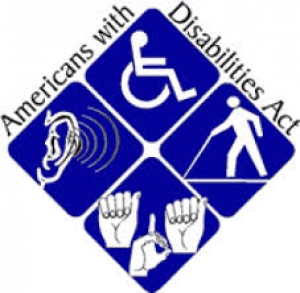
Michael Klimpl
Michael’s practice areas include Real Estate, Municipal Law, Zoning and Land Use, Employment Law, Civil Litigation, Estate Planning and Estate Administration, with a concentration in the areas of employment law, estate planning and administration, and transactional law.
To view Michael Klimpl's full bio, click here.
Website URL: http://www.ammlaw.com/attorney-profiles/michael-a.-klimpl.html
A Tale of Two Statutes: What are Compensable “Hours Worked”?
A recent decision by the Pennsylvania Supreme Court underscores the fact that although an employer may be in compliance with the federal Fair Labor Standards Act (“FLSA”), it may at the same time be in violation of the Pennsylvania Minimum Wage Act (“PMWA”).
The case, In Re: Amazon.Com, Inc. et al. v. Amazon.com, Inc., Amazon.com.DEDC, LLC, and Integrity Staffing Solutions, Inc. (43 EAP 2019), involved a class action brought by two employees who worked at an Amazon warehouse in Pennsylvania and sought to be compensated for time spent at the premises waiting to undergo and undergoing mandatory security screening.
As discussed below, a federal district court had dismissed the employees’ claims under the FLSA and the PMWA, but the federal Sixth Circuit Court of Appeals certified the case to the Pennsylvania Supreme Court to address the questions as to whether the PMWA applied to the employees’ claims and whether there is a de minimus exception to the PMWA.
RETALIATION CLAIMS: EMPLOYERS BEWARE!
Most employers these days are aware of the many workplace claims an employee might bring, including allegations of discrimination on account of race, color, religion, sex, national origin, sexual orientation, pay, age, or disability. Among other claims are those brought under the Fair Labor Standards Act (minimum wage, overtime) and the Family Medical Leave Act.
Employers paradoxically seem less aware of a retaliation claim an employee may bring. Paradoxically, because as reported by the Equal Employment Opportunity Commission (“EEOC”-the federal agency responsible for enforcing laws prohibiting employment discrimination), retaliation claims constituted the highest percentage of all charges filed in its fiscal year 2019.
Moreover, as discussed below, retaliation claims, by which an employee can obtain the same remedies as discrimination claims, are often easier for an employee to prove.
A recent opinion by the United States Court of Appeals for the Third Circuit (covering Pennsylvania) illustrates what an employee must do to state a case for retaliation and how an employer might defend the action.
Employer's Potential Liability for Third Party Harassment
The increased attention to sexual harassment in the work place is reflected in the increasing number of sexual harassment suits filed by the United States Equal Employment Opportunity Commission-a federal agency whose responsibilities include enforcing federal nondiscrimination laws.
This trend magnifies the need for employers to be aware of an opinion by a judge of the United States District Court of the Eastern District of Pennsylvania, holding that an employer may be liable for the sexual harassment of one of its employees by a nonemployee.
In this case, Hewett v. BS Transportation of Illinois, LLC, et al., the Court considered various claims by an employee, Hewitt, including a claim of sexual harassment, against his employer, BS Transportation.
Specifically, Hewitt alleged that he was a freight driver for BS Transportation whose job responsibilities included weekly loading of oil at a Sunoco refinery.
According to the allegations in Hewitt’s complaint:
During the course of Hewitt’s employment, a Sunoco employee sexually harassed Hewitt, first with sexual
comments and hand gestures and then after Hewitt asked the employee to stop, with more aggressive behavior including
physical contact. Hewitt made complaints to the Sunoco employee’s supervisor, as well as Hewitt’s supervisor at BS
Transportation who was also the owner of BS Transportation. Although Hewitt’s supervisor indicated he would
“handle the matter” with the Sunoco employee, the supervisor did not investigate the complaint nor did the Sunoco
employee’s supervisor. After a pause in his harassment of Hewitt, Sunoco’s employee again engaged in sexual
harassment of Hewitt, who again complained to Hewitt’s supervisor. Hewitt’s supervisor did not notify Sunoco of
these latest actions by the Sunoco employee. Shortly after the resumption of the harassment, Hewitt’s employment
with BS Transportation ended.
As a result of the alleged harassment described above, Hewitt filed suit in federal court alleging, among other claims, sexual discrimination by BS Transportation in violation of Title VII of the Civil Rights Act of 1964. (The Court dismissed claims against Sunoco and its employee). While dismissing certain claims against BS Transportation and its supervisor, the Court did permit the sex discrimination claim to proceed-deeming it a claim of hostile work environment. (The Court in allowing the case to proceed did not make any factual findings regarding Hewitt’s allegation. Rather the Court needed to decide at this stage whether Hewitt stated a plausible claim against his employer).
The Court noted that the claim in this case was not like most claims of employment discrimination, where the offending conduct is alleged to have been committed by an employee of the employer. This case instead involved a nonemployee. The Court, however, allowed the case to proceed based on the allegations that a management -level employee (Hewitt’s supervisor)of BS Transportation was aware of the harassment complaints and failed to investigate or take appropriate action and that BS Transportation failed to notify Sunoco when Sunoco’s employee allegedly resumed harassment of Hewitt.
Pointing to decisions of other courts, the Court in this case held that an employer may be liable for employment discrimination “where the employer (or its agents or supervisory employees) knows or should have known of the conduct and fails to take immediate and appropriate action”(quoting Johnson-Harris v. AmQuip Cranes Rental ,LLC). The Court ruled that Hewitt had alleged sufficient facts to let the matter go forward. The Court also found that Hewitt stated a claim (yet to be proven) that BS Transportation’s supervisory employee had aided or abetted an unlawful discriminatory practice under the Pennsylvania Human Relations Act.
The obvious takeaway from this decision is that an employer must have procedures in place to immediately and thoroughly investigate claims of workplace discrimination of any type. These procedures, of course, go along with anti-discrimination policies and procedures that may be used by an employee to file a complaint with the employer.
The less obvious lesson from this case is that an employer could be found liable for the unlawful conduct of a nonemployee if it fails to take appropriate action, including a thorough investigation. The reasoning of this case can easily be applied to other nonemployees who come into contact with an employer’s employees- vendors, outside maintenance personnel, salespeople, customers and so on. An employer must be alert as to any such claim that could give rise to a lawsuit.
Employers------Protect Your Employees’ Data - Or Else!
The Pennsylvania Supreme Court has recently held that an employer may be liable to its employees for a data breach involving the employees’ “personal and financial information including names, birth dates, social security numbers, addresses, tax forms and bank account information…”
The case, Dittman v. UPMC d/b/a The University of Pittsburgh Medical Center and UPMC McKeesport (“UPMC”), involved a class action complaint on behalf of 62,000 current and former employees of UPMC. The employees asserted that their personal and financial information (described above) was stolen from UPMC’s computer systems and “used to file fraudulent tax returns on behalf of the victimized [e]mployees, resulting in actual damages”. Significantly, the employees also asserted that the information accessed and stolen was information they were required to provide their employer as a condition of employment.
The employees’ claims against UPMC were based on their employer’s alleged negligence in failing to properly maintain and protect the employees’ personal and financial information. Two lower courts had ruled against the employees, resulting in a dismissal of their claims.
On appeal, the Pennsylvania Supreme Court reversed the lower courts and concluded that an employer has a legal duty to exercise reasonable care in collecting, storing and safeguarding its employees’ personal and financial information where the employer chooses to store such information on an “internet accessible computer system” and the employees are required to provide such information as a condition of employment.
Based on the Court’s recognition of this duty, the issue in the case then turned on the question as to whether the UPMC could be said to have been negligent in the performance of its duty to its employees. As with any matter, where one party is claiming injury because of another party’s negligence, the ultimate outcome is fact- specific. In this case, the Court held that the employees had stated a potential claim where they asserted that their information was negligently “collected and stored on its [employer’s] internet-accessible computer system without the use of adequate security measures, including proper encryption, adequate firewalls and an adequate authentication protocol.”
The Court did not accept UPMC’s defense that the data breach occurred as result of criminal activity rather that UPMC’s own negligence: the criminal activity would be “ ’within the scope of risk created’ “ by UPMC and thus something against which it would have to provide protection.
Also rejected by the Supreme Court, was the lower courts’ application of the economic loss doctrine. This doctrine, as interpreted by the lower courts, would have barred the employees’ claims because they alleged no physical injury or property damage-only an economic loss. The Supreme Court held that this doctrine was not applicable to the claims in this case because the employees’ claims were not based on a contract claim but based on a tort, namely the alleged negligence of the UPMC in undertaking its duty to protect the employees’ information.
The Supreme Court, having set forth the employer’s duty to its employees, sent the case back to the trial court for new proceedings consistent with the Supreme Court’s ruling. (The Supreme Court did not actually make a factual determination by this case that the employer was negligent).
The decision in this case should cause an employer to triple-check the safeguards attached to the data it maintains and to further consider what personal data and financial data(if any) of its employees the employer actually needs to retain. Any data breach may be litigated and analyzed against what protections were in place, what protections could have been in place and whether the employer used reasonable care to protect the information.
Telecommuting: A reasonable accommodation under the American with Disabilities Act?
Under the Americans with Disabilities Act (ADA), an employer must provide reasonable accommodations to an employee who is disabled (as defined under the ADA) and who is otherwise qualified for the position.
An issue frequently faced by employers and addressed by the courts is what constitutes a “reasonable accommodation”?
A federal appeals court recently addressed this matter, where an employee confined to bed because of complications from her pregnancy, requested that she be permitted to work from home or a hospital (telecommuting) for a ten week period. Mosby-Meachem v. Memphis Light, Gas & Water Div. 2018 WL 988895 (6th Cir. February 21, 2018). The employee served as an in-house counsel for a corporation. Her request to telecommute for ten weeks was denied. The company did not at the time of the request have a formal written telecommuting policy-although it did permit telecommuting and permitted the employee on a prior occasion to telecommute. The employee filed suit under the ADA, and a jury awarded her $92,000 in compensatory damages. In affirming the jury’s award, the court held that a “rational jury [under the specific facts of the case,] could find that the employee was a qualified employee, [covered by the ADA] and that working remotely for ten weeks was a reasonable accommodation.” In reaching its conclusion, the court found that sufficient evidence had been presented to the jury to support the employee’s claim that she “could perform the essential functions of her job remotely for ten weeks…” The court rejected the employer’s claim that the written job description for this employee dictated the opposite result because the job description was outdated and did not reflect the employee’s actual work requirements. The court, in affirming the jury verdict, also relied on the fact that the employer did not engage in an “interactive process” with the employee to understand the limitations the employee faced, and what accommodations might be put in place to allow the employee to continue at her job. Instead the employer pre-determined what it intended to do without conversing with the employee. Several lessons can be drawn from this case: First, even if an employer has no telecommuting policy or a policy which does not permit telecommuting, the employer, under a particular set of facts, may be in violation of the ADA if telecommuting would be found to be a reasonable accommodation. Secondly, an employer must engage in an interactive process with an employee to determine what, if any, accommodation might be reasonable under the particular circumstances. This means direct communication between the employer and the employee. An inflexible policy of the employer may end up causing the employer to be in violation of the ADA. Finally, written job descriptions must be reviewed and updated as needed. An outdated or inaccurate job description cannot help an employer and in many instances will be detrimental to an employer seeking to defend against a claim of job discrimination.
Caution: Intern or Employee?
Under the federal Fair Labor Standards Act (FLSA), employers in “for-profit” enterprises are required to pay compensation to their employees, including a designated minimum wage and overtime pay.
An issue often faced by employers is whether an intern or student is actually an employee entitled to compensation, or whether the intern or student may work without receiving pay.
On January 5, 2018, the United States Department of Labor (“DOL”), which enforces the FLSA, announced in Field Assistance Bulletin No. 2018-2, that it was now going to follow the decision of several appellate courts in promulgating a new test for determining if an intern is actually an employee entitled to compensation.
Specifically, the DOL, announced that it would use the “primary beneficiary test” to determine the status of the would-be intern. The test is intended to be flexible and allows courts or the DOL to review the “economic reality” of the relationship to determine which party, would-be intern or employer, is the primary beneficiary of the relationship.
As part of the “primary beneficiary test”, the DOL adopted seven factors used by the courts:
1. The extent to which the intern and the employer clearly understand that there is no expectation of compensation. Any promise of compensation, express or implied, suggests that the intern is an employee—and vice versa.
2. The extent to which the internship provides training that would be similar to that which would be given in an educational environment, including the clinical and other hands-on training provided by educational institutions.
3. The extent to which the internship is tied to the intern’s formal education program by integrated coursework or the receipt of academic credit.
4. The extent to which the internship accommodates the intern’s academic commitments by corresponding to the academic calendar.
5. The extent to which the internship’s duration is limited to the period in which the internship provides the intern with beneficial learning.
6. The extent to which the intern’s work complements, rather than displaces, the work of paid employees while providing significant educational benefits to the intern.
7. The extent to which the intern and the employer understand that the internship is conducted without entitlement to a paid job at the conclusion of the internship.
The DOL stated that no one factor is determinative of the issue and that the ultimate classification of intern or employee “under the FLSA necessarily depends on the unique circumstances of each case”.
With respect to volunteers for governmental services and non-profits, the Wage and Hour Division of the Department of Labor set forth the following in Fact Sheet No. 71:
“The FLSA exempts certain people who volunteer to perform services for a state or local government agency or who volunteer for humanitarian purposes for non-profit food banks. WHD also recognizes an exception for individuals who volunteer their time, freely and without anticipation of compensation, for religious, charitable, civic, or humanitarian purposes to non-profit organizations. Unpaid internships for public sector and non-profit charitable organizations, where the intern volunteers without expectation of compensation, are generally permissible.”
Employers who use interns should carefully review whether they are complying with the law. AMM’s Employment Law attorneys can assist you with this and all compliance issues. To learn more about Michael Klimpl, visit ammlaw.com.
A Cautionary Tale for Employers: One-Time Racial Slur Can Be Basis of Harassment Claim Against Employer
Clarifying its earlier rulings, the Court of Appeals for the Third Circuit (which includes Pennsylvania) has ruled that a single utterance of a racial slur at the workplace could support a claim for harassment.
In this case, two African-American males (plaintiffs) brought suit challenging their firing on the basis that their termination was discriminatory and racially motivated.
The employees specifically alleged that when they arrived at work on various occasions, an anonymous note was written on the sign-in sheets: “don’t be black on the right of way.” They also asserted that while they had more experience working on pipelines than the non-African-American workers, they were only permitted to clean the pipelines rather than work on them. Significantly, a supervisor of these two African-American employees used a severe racial slur to threaten firing if a specific project was not completed to his satisfaction.
The two employees reported this offensive language to a superior and two weeks later they were fired without explanation. After being rehired they were again terminated for “lack of work”.
The suit filed in federal District Court specifically alleged unlawful harassment, discrimination and retaliation. The District Court dismissed the harassment claim, holding that the facts in the complaint did not support a finding that the alleged harassment was “pervasive and regular”. The Court also dismissed the related claims of discrimination and retaliation.
The United States Supreme Court Issues New Test for Determining Pregnancy Discrimination Claims in the Workplace
Federal law (Title VII of the Civil Rights Act of 1964) prohibits, among other matters, a covered employer, from discriminating against an employee because of such individual’s sex. Generally, a private employer with 15 or more employees, engaging in interstate commerce, is covered by Title VII. The Pregnancy Discrimination Act (PDA) passed in 1978, added discrimination based on “pregnancy, childbirth, or related medical conditions” to this prohibition.
The PDA also provides that employers are required to treat “women affected by pregnancy… the same for all employment-related purposes … as other persons not so affected but similar in their ability or inability to work” .
In the recent case of Young v. UPS, the Supreme Court, in interpreting the provision above, announced a new test for analyzing pregnancy discrimination claims. The relevant facts of the case are as follows:
Plaintiff Young worked as a part-time driver for defendant United Parcel Service (UPS). Her duties included pickup and delivery of packages. While employed by UPS she became pregnant and was told by her doctor that she should not lift more than 20 pounds during her first 20 weeks of pregnancy and no more than 10 pounds thereafter. Drivers in Young’s position were required to lift up to 70 pounds. UPS therefore advised Young that she could not work while under a lifting restriction. As a result Young remained home without pay during most of her pregnancy and ultimately lost her employee medical coverage.
Restrictive Covenants: A Cautionary Tale
A recurring issue employers must address is the enforceability of restrictive covenants entered into with an employee. These restrictive covenants are typically non-disclosure (confidentiality), non-solicitation, and/or non-competition agreements. The timing, form, and substance of these agreements will determine whether a court will find them valid. From a former employee’s perspective, the issue is basically the same but reversed: can the employee disregard a previously signed restrictive covenant without being liable for monetary damages to his former employer (and if newly employed at another company, keeping the second company out of litigation)?
Two cases recently decided by the Pennsylvania Superior Court provide guidance for employers and employees:
Fleisher v. Bergman, concerned an employee who was hired as a full-time employee. At the time of his hire, employee signed a restrictive covenant which was a confidentiality and non-competition agreement. The restrictive covenant provided that employee would not divulge any “Confidential Information” (e.g., customer lists, pricing policies, names of vendors) to other parties without the consent of employer; the Agreement further mandated that for a period of five years after termination of his employment, employee would not “. . . solicit or do business with any . . . entity . . . that was, within the three year period preceding the Employee’s termination, a Client or Prospect of Employer... ”



























